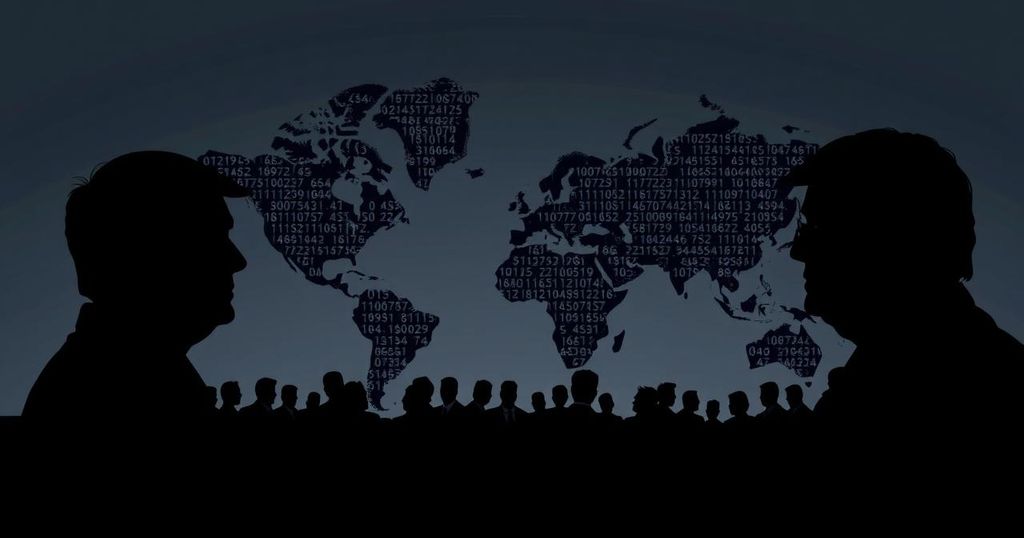Brazil’s Lula and Spain’s Sánchez are facing criticism over their ties to Nicolás Maduro as they host a pro-democracy event at the UN, avoiding the Venezuelan crisis while emphasizing global far-right threats. Their diplomatic approaches are under scrutiny for perceived hypocrisy, particularly following controversial actions related to opposition leader Edmundo González Urrutia’s asylum. As they balance global interests against local criticisms of their conduct toward Venezuela, inconsistencies in their policies are becoming increasingly pronounced.
During the recent United Nations assembly, Brazilian President Luiz Inácio Lula da Silva and Spanish Prime Minister Pedro Sánchez faced scrutiny regarding their ties to Nicolás Maduro amidst rising criticism of their diplomatic approaches. They hosted a pro-democracy event that highlighted concerns about far-right movements globally, yet notably omitted any discussion of the ongoing Venezuelan crisis. This has drawn criticism from various quarters, including Chile’s President Gabriel Boric, who emphasized the need for consistency in upholding democratic values regardless of political affiliations. While neither leader has acknowledged Maduro’s disputed election victory, they have refrained from openly supporting opposition claims of a rightful victory, resulting in backlash from critics who argue that their rhetoric against far-right governance should extend to the Maduro regime as well. Notably, Sánchez’s administration is under increased scrutiny following a controversial agreement facilitating the departure of opposition figure Edmundo González Urrutia from Venezuela, which inadvertently aided Maduro’s regime. The situation became more contentious when it was revealed that the Spanish ambassador’s residence hosted Maduro loyalists for negotiations regarding González Urrutia’s asylum, raising questions about Spain’s approach to the Venezuelan crisis. Meanwhile, Lula has proposed a diplomatic resolution, seeking to engage Maduro while facing difficulty in transforming his long-standing friendship into effective diplomatic leverage. Despite both leaders’ claims of prioritizing democratic principles, their connections to the Venezuelan regime have led to interpretations of hypocrisy in their policies. In light of increasing global concerns regarding threats to democracy, particularly in the context of a potential Donald Trump presidency, Lula and Sánchez are focusing their diplomatic efforts on combating misinformation and protecting electoral integrity. This emphasis was underscored by the presence of other global leaders at their event, signifying a collective prioritization of broad democratic issues over the immediate Venezuelan plight. Nevertheless, independent events addressing the Venezuelan crisis reflect an undeniable urgency that threatens to overshadow their broader agenda.
The ongoing diplomatic relations between Brazil and Venezuela, particularly under the administrations of Presidents Lula and Maduro, have drawn both admiration and criticism. Lula’s previous alliances with leftist regimes in South America complicate Brazil’s position, especially as Venezuela faces severe international scrutiny due to Maduro’s alleged human rights abuses. Amidst accusations of authoritarianism, these leaders navigate their public stances carefully, attempting to advocate for democracy while maintaining ties with controversial leaders. The recent United Nations assembly highlighted these tensions, particularly as calls for recognizing the true electoral outcomes in Venezuela intensified. This backdrop of political maneuvering underscores the complexities of democratic governance in a region marked by ideological divides.
The gathering at the United Nations has illuminated the challenging position of leaders like Lula and Sánchez, who attempt to champion democracy while grappling with the repercussions of their associations with Maduro’s regime. Their diplomatic strategies risk being undermined by their reluctance to engage openly with the Venezuelan crisis, potentially alienating them from both domestic and international observers who demand more principled stances. As the focus on global democratic integrity intensifies, the need for clarity in their policies becomes paramount.
Original Source: www.batimes.com.ar






